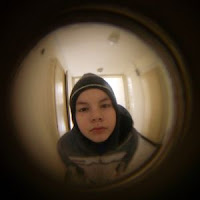 I was asked recently about my experience of supervision in my first year. I am thinking back 12 years now. I was not observed formally more than three times my first year. I was observed informally numerous times. This year however, I have experienced a new type of observation from my supervisor. My current principal stops in almost every morning for about 30 seconds. He doesn’t ask questions or interrupt. He just watches, smiles, and leaves.
I was asked recently about my experience of supervision in my first year. I am thinking back 12 years now. I was not observed formally more than three times my first year. I was observed informally numerous times. This year however, I have experienced a new type of observation from my supervisor. My current principal stops in almost every morning for about 30 seconds. He doesn’t ask questions or interrupt. He just watches, smiles, and leaves.
As I have gained experience my perspective on this has changed. In the beginning I thought I was being “cheated” the necessary guidance I thought I needed. Over time I have discovered that some aspects of my practice are observed informally and frequently (lesson planning, management, and student rapport) while formal observations were almost incidental. I always tell new teachers that they are judged by how they walk their students down the hall and it is true. I have never received more than cursory feedback from formal observation although I have asked and even pressed administrators for feedback.
Recently, after reading Malcolm Gladwell’s “Blink” which describes how experts and people in general can “thin slice” experiences and make the same or better qualitative judgments as scientifically based observations I decided that a principal can probably see “what a teacher actually does” as well or better in an informal 30 second observation as in a formal observation.
After having done some observation of student teachers, I have come to see the process of observation as much more fluid. The coaching or formal observation process can be extremely helpful to inexperienced teachers but I am not sure that it is the best use of administrators’ expertise. I have always believed what my father said about management, that “It is easy to make someone do their job but hard to make them want to do their job.” The observation/accountability process can intrude on this aspect of the administrator/teacher relationship.
I do think that observation is changing in the field but it has not happened in my school system yet. I think that observation for coaching is one area where teacher leadership can make a significant impact if the structure of schools is changed to allow for this type of leadership. Peer coaching may be more effective than supervision in supporting novice and struggling teachers. The evaluative aspect of administrator observations can actually distract from the goal of coaching. When a young teacher is observed for evaluation they are doing “their best” while, when they are observed for coaching it is understood that they are trying to improve and so may may show what is actually closer to their practice. Reflection on video is an excellent tool in this situation.
I have been trained as a coach using the Santa Cruz “New Teacher Center” protocols. They use a criterion referenced observational system that focuses on reflection as the primary tool for improving teaching practice.
If a supervisor is necessary to provoke reflective thought in a teacher maybe that teacher shouldn’t be practicing or at least should still be in an apprentice position.
